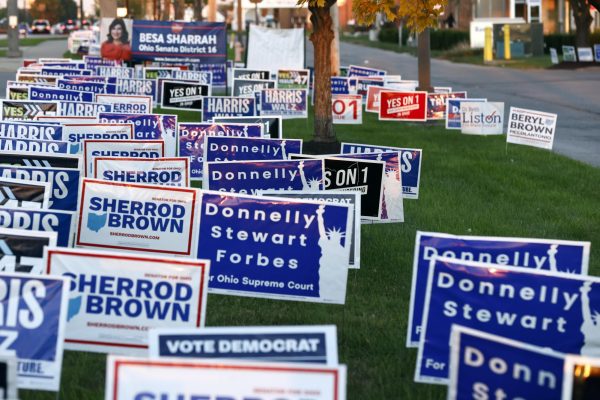What’s Left: On President Trump’s Proposed Tariffs
Trade and economics are way more complicated than what you can fit on a bumper sticker. Foreign policy and domestic policy are not unrelated. Can someone tell the President that?
Last Thursday, Trump announced his plan to impose tariffs on both imported aluminum and steel. This move is in line with his “America First” agenda which aims to help the American blue collar worker and bring back jobs here. If the equation was that simple, maybe this could work. If these imports are taxed, then manufacturers would be incentivized to buy American products because they would be cheaper.
But it is not that simple.
First, off let’s rewind to Intro to Econ and talk about supply and demand. Steel and aluminum are two products that are in high demand. They are used to build cars, infrastructure, appliances and so much more. The more expensive steel and aluminum are, the more expensive the products become for Americans. But there’s a problem when it comes to supply. America does not have enough. MillerCoors, the beer brewing company, put out a statement saying, “We buy as much domestic can sheet aluminum as is available, however, there simply isn’t enough supply to satisfy the demands of American beverage makers like us. American workers and American consumers will suffer as a result of this misguided tariff.”
The world is anarchical and, yes, nobody can tell Trump what to do but we don’t need to be constantly playing into the idea that protectionism is best and war is inevitable. The question of potential war has come up in headlines way more than I would like it to. Allies are important. Interdependence is necessary. This tariff would make the United States an enemy of the global economy.
I believe in the movement toward buying more products made in America. We should support industries here so that the we boost our own economy. The more jobs that adequately pay their workers the better. But there is a reason trade exists. We do not have the right conditions to be a leader in some industries. America is a great country. It is a capable one, but trade does not mean we are putting America last. Canada, due to highly available hydropower, is a great place to produce aluminum. America has one of the most modern steel mills in the world in Alabama, but China does a better job producing it to meet demand. It is a problem that China dumps so much foreign steel into our market. But the reality is American steel production cannot meet our demands.
Although Trump uses big claims and vague, broad language, he is failing to see the bigger picture. The companies who produce steel and aluminum have suffered in the past decade, especially during and in the aftermath of the 2008 market crash. But when looking at how many Americans they employ versus how many American companies who make products that use aluminum and steel employ, the numbers do not compare. Under 200,000 for the former, over 6.5 million for the latter.
The workers who are helped by this tariff should not be villainized, but the zero-sum game Trump is playing is creating more losers than winners. He is also making more enemies than friends. The EU is threatening tariffs on goods that America exports to Europe, such as jeans, motorcycles and bourbon. There has been speculation that this could lead to a trade war and the U.S. may be breaking World Trade Agreement rules. It is unclear if these tariffs will exempt allies such as Canada but still target China. That could be even more dangerous and raise even more tensions.
In response to the global discussion about a possible trade war, President Trump tweeted on Friday, March 2 at 5:50 am, “When a country (USA) is losing many billions of dollars on trade with virtually every country it does business with, trade wars are good, and easy to win. Example, when we are down $100 billion with a certain country and they get cute, don’t trade anymore-we win big. It’s easy!” This is not the rhetoric a president should be throwing around on the brink of global crisis. Protectionism is not America’s smartest route and a trade war has no winners. The President should not threaten these tariffs on his own whim because he relies on the media to get distracted from the chaos which ensues within the White House. He cannot bend the rules of international economics and trade law to fit his agenda and rhetorical style. It is not as easy as he hopes it is.
Contact Glynnis Harvey at [email protected].








